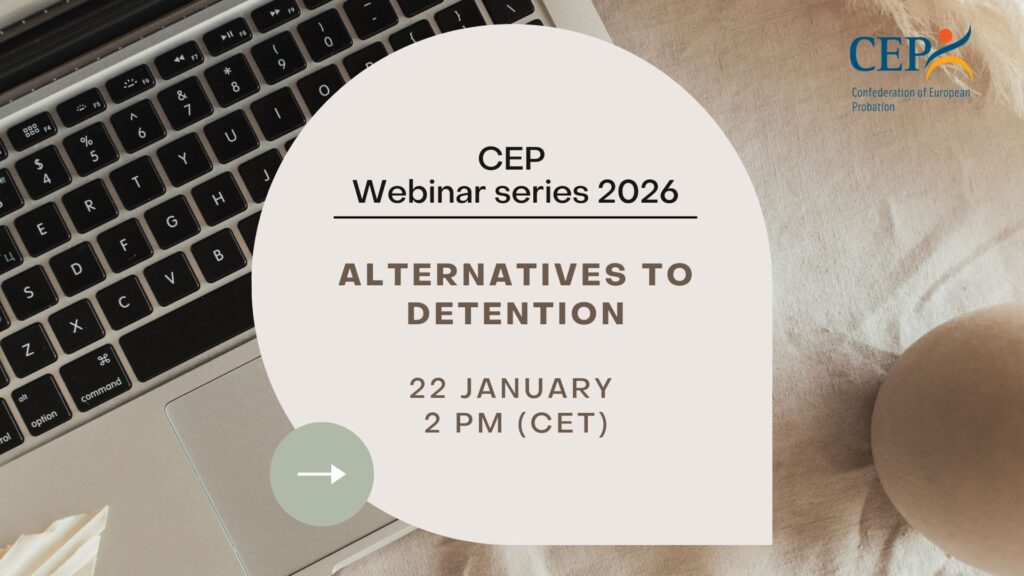Previous Article
News
Reducing short-term prison sentences in Northern Ireland: Enhanced Combination Orders
An article by Stephen Hamilton, Assistant Director PBNI.
Research shows that short-term prison sentences are less effective in addressing offending behaviours than community-based disposals. The Lord Chief Justice therefore requested that the Probation Board for Northern Ireland (PBNI) develop a demanding community sentence as an alternative to the high number (88% at May 2015) of prison sentences lasting less than 12 months. Based on existing legislation and known as the Enhanced Combination Order (ECO), ECOs offered Judges a community option in a more intensive format.
Piloted in the Ards and Armagh & South Down court divisions since 1st October 2015 and extended to the North West in October 2018, ECOs focus on restorative practice, desistance and victims, with service users also required to complete unpaid work within their local communities. Those with mental health issues are assessed by PBNI psychologists, with a treatment plan then forming part of the intervention where necessary. Where accredited programmes, parenting/family support work, alongside Barnardo’s, and interventions with Restorative Justice partners are also part of the Order. 404 people in Northern Ireland have now been sentenced to an Enhanced Combination Order instead of a short prison sentence.
Earlier this month, an evaluation of the Enhanced Combination Order has been published and it shows that these Orders have been making a positive difference to individuals, families and communities in Northern Ireland.
The evaluation found that:
- The number of custodial sentences of 12 months or less, awarded by courts involved in the ECO pilot, decreased by 20.7% between 2015 and 2017;
- Nine in ten service users agreed that the programme had helped them address their offending behaviour and they were unlikely to commit a further similar offence;
- The vast majority found the help addressing problems in their lifestyle and the way they thought about future offending useful (87%) and agreed that PBNI staff’s support helped them avoid/reduce re-offending (90%);
- Problems with alcohol and drugs were identified for 71% and 61% of service users respectively. The benefits of the support provided to address addiction and mental health issues were highlighted particularly in relation to the work undertaken through the psychology element of the initiative;
- The vast majority of service users said they found the help addressing problems with drinking/drug use (83%) useful;
- There was also a reduction in assessed risks of reoffending.
The evidence highlighted in the evaluation shows that the ECO initiative is an effective programme for service users who value and benefit from the support it provides. The initiative has been embraced by the Judiciary. This reduction in custodial sentences with the resultant decrease in tax payer costs was identified as a major benefit of the pilot. The indicative savings of ECOs, in the event of full rollout, has been independently estimated at up to £8.3m per annum, which on top of the clearly beneficial social impact, and focus on offending and victim issues, indicates a sentence which continues to provide value for money and better outcomes in comparison to short prison sentences.
Importantly the Probation Board work closely with community partners and Victims Support Northern Ireland to ensure that the voice of victims is taken into consideration when delivering this project. We want to continue to focus on our work with victims and with community partners.
Probation’s aim is to change lives for safer communities. This Order is enabling us to do that and Northern Ireland is safer as a result.

Related News
Keep up to date with the latest developments, stories, and updates on probation from across Europe and beyond. Find relevant news and insights shaping the field today.
New

CEP members, Gender-based violence
Interventions Alliance’s Eden House Recognized as Outstanding
15/01/2026
CEP is delighted to share that Eden House, an Interventions Alliance residential service for women with high-risk or complex needs on probation, has been rated “Outstanding” overall by HM Inspectorate of Probation. In 2022, Eden House was honored with the CEP Public Protection Award. Our sincere congratulations to the team for this remarkable achievement.
New

Education and Training
The Judicial Training Dashboard
14/01/2026
The European Training Platform (ETP) is a search tool for justice professionals. You can find self-learning materials on a great variety of EU law practice areas and related topics, as well as links to training providers’ homepages and course catalogues.
New

Technology
Communication on DigitalJustice@2030
13/01/2026
The EU’s competitiveness will increasingly depend on the digitalisation of all sectors, which will drive investment. Digitalisation and the deployment of artificial intelligence (AI) will be essential to the ability of public authorities to deliver high-quality public services, notably also in the field of justice. Europe’s Digital Decade is underway with the ambition that by 2030 the EU has all key public services available online. The ultimate aim will be to increase the efficiency of public services by making them digital by default, stimulating productivity.
New

Alternatives to pre-trial detention, CEP Events
Webinar on Alternatives to Detention – CEP Webinar Series 2026
13/01/2026
CEP is pleased to invite you to the first webinar in the CEP Webinar Series 2026, taking place on Thursday, 22 January 2026, at 14:00 CET. This webinar will introduce a unique programme developed by the Meuse Probation Service, which was awarded the CEP Award 2025 in the category of Rehabilitation and Social Inclusion (The Sue Hall Award).
New

Alternatives to pre-trial detention, CEP Events
CEP Webinar Series 2026
12/01/2026
In 2026 CEP launches a series of short webinars that will take place every third Thursday of January, March, May and November.
We sincerely invite all probation practitioners, social workers, managers, policy makers, researchers, students as well as colleagues from partners organisations to join and share your knowledge with us.
New

Uncategorized
Help Us Improve the CEP Website
07/01/2026
At Confederation of European Probation (CEP), we want to make sure our website continues to support our mission and the work of our community in the best possible way.
We are inviting you to take part in a short survey that takes around six minutes. Your feedback will help us understand what is working well and where the website can be improved.
Subscribe to our bi-monthly email newsletter!
"*" indicates required fields
- Keep up to date with important probation developments and insights.

